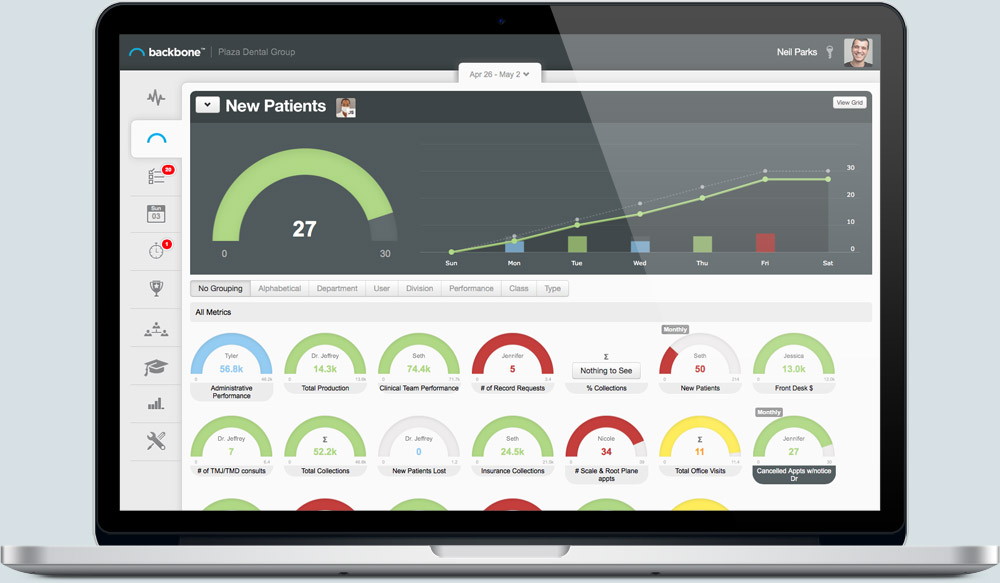The primary purpose of technology is to minimize hindrances in tasks. This is the reason why businesses utilize customized software. And that’s also true for startups.
While starting a new venture, entrepreneurs often tend to focus more on saving costs. At the same time, they look for resources to get the job done efficiently. Having good customized software hasn’t been on their priority list most of the time.
Building software from scratch has also become easy today. You can make use of various resources and platforms available online to customize your business software. You can also find many dedicated automation testing platforms are available online to test your software’s performance with ease.
Earlier these process were not this easy. But now, everything has come online and all you need to do is make use of them. Many tools are even free of cost that can be great option for any startup.
If you have the same mindset of not having your customized software, you must reconsider your priorities. Read on to find out why you should consider having software for your startup.
9 Reasons Startups Should Have a Software
1. Task Automation
Business dynamics are hard to keep pace with unless you deploy task automation software. Such tools help synchronize tasks across multiple departments.
Task automation software is customizable. You can set rules for a specific task, and define the next steps. For example, when the system receives a query, it should send an alert to your support team to respond on time.
You can also use automation software to track your system’s efficiency. Rigorous testing helps you improve synchronization for better automation.
2. Research
Businesses in their initial phases tend to invest a lot of money in market research. Here, investing in the right software can save you a lot of time and money. A good market research tool can help you in many different ways, including:
- Collecting relevant data
- Identifying your competitors
- Learning from their best practices
- Finding relevant audience
- Determining ways to target your audience
3. Manage Data
Data management tools are must-haves for any business. As a business, you have to deal with different types of data that can easily be mismanaged without the right software. A good data management software is flexible enough to handle variations in data types.
You can store:
- Computer-generated data (PDF, Word, Excel, PPT, videos)
- Printed data (CV’s, reports, manual surveys, images)
- Stamps and signatures
A centralized data management system offers ease of use. An authorized person can get access to the system from a remote location. This saves a lot of time, especially during urgent meetings, audits, or remote meetings.
4. Performance Tracking

With the right software in hand, you can track the overall performance of your company. The software is flexible enough to track the performance of your contracts:
- How are the vendors are performing?
- Are you getting consistent supplies?
- Is there anyone not complying with the duties?
Moreover, you can track the performances of your employees individually—departments as well. Performance tracking goes a long way to set your pace. You can always make informed decisions based on your findings.
5. Minimize Paperwork
One of the biggest benefits of using business software is it cuts down the paperwork. You can instantly download information, do the data entry, or use OCR (optical character recognition) to store the information. And this will remain there for a long, long time.
Virtual data solutions have made it possible for businesses to save costs on paperwork. You won’t be needing wall-to-wall cabinets or outsource your filing system. Hence, eco-friendliness!
6. Save Management and Administration Cost
As a startup, you don’t want to be spending money on indirect labor. With the right software, you can simply perform administrative tasks with just a few clicks.
A comprehensive CRM tool is comprehensive enough to keep all employees connected, so you know who you’re working with.
Moreover, it offers individual as well as team coordination and involvement. This means you can directly or indirectly assign extra responsibilities if needed.
You can utilize these channels to:
- Hold meetings
- Communicate updates in policies in real-time
- Track project performance
7. Employee Development and Retention
For startups, employee retention is a huge challenge. Forward-looking employees gauge companies on the basis of personal growth opportunities. And companies that invest in employee development programs reap great benefits.
With centralized software acting as your data repository, you have the means to set up training programs for newcomers. You may integrate training software to educate new hires about:
- Your company’s vision
- Expectations from them
- How they can accelerate
- On-job learning opportunities
- Growth possibilities
8. Minimizes Mistakes
Automated tools allow you to store information and create templates that you can use later. Moreover, the saved data points let you create a comprehensive compliance policy according to the latest jurisdictions.
You can implement the policy across all departments and teams. This allows the HODs to implement a set of instructions for their teams according to their job nature.
This simply means you will get a well-synchronized compliance monitoring system. It will effectively pinpoint discrepancies.
9. Increases Productivity
When you utilize your business software to its full potential, you’ll see better productivity throughout the organization. Maximum productivity is eventually the main objective, and software can help you meet it.
Types of Software for Startups

Software tools vary in terms of functionality and purpose. A real estate firm would be more interested in having a self-updating centralized repository that also offers automation.
On the other hand, a law firm or an accounting firm would invest in an efficient record-keeping tool that can generate different reports as per requirements.
In short, there are different types, but the most common ones include:
- Contract Management Software: It keeps a record of all supplier contracts, maintains consistency, and tracks compliances.
- Accounting Software: Payroll software, invoice software and asset management software are all types of accounting software.
- Task Automation Software: These tools have become very important in rendering efficiency and consistency to businesses. Task automation saves precious time and money, and gives you more control over your systems
- CRM / HRM Software: Another very important tool to manage your workforce and keep them on the same page. You can communicate with teams individually and collectively and track performance.
Conclusion
Business software is necessary for established businesses as well as startups. However, the requirements may vary depending on the scope, resources and responsibilities.
With all the benefits discussed above, these software systems let you focus on the core. They share your burden of record-keeping, monitoring compliance, keeping a check on resources, meeting legal requirements, etc.
This results in ample productive time. You can penetrate different markets, generate leads effectively, close more deals efficiently, and stay ahead of the competition.



































